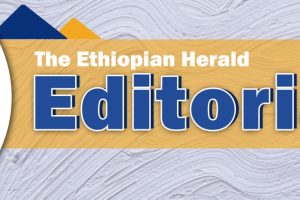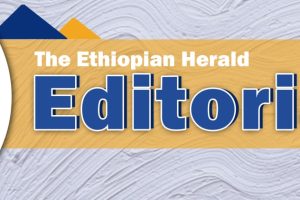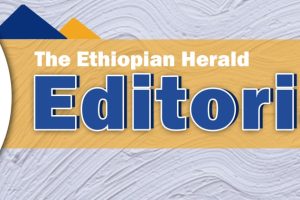
What It Is Arbegnoch Ginbot 7 was until a few months ago the armed re-incarnation of Kinijit, a coalition political organization which had, by all reasonable accounts, won the 2005 general election in Ethiopia. As we are all likely to remember, that election was turned into a blood bath by the brutal Meles Zenawi-led ethnicist military dictatorship.
Arbegnoch Ginbot 7 (AG7) is now back on home soil after nearly fourteen years of forced exile, engaged in peaceful political activity under the reformist Abiy government which came to power in March 2018. Many would agree that the salient strengths of AG7 are historical authenticity, sterling leadership, a massive following (particularly in urban areas) and plain common sense. Arguably, AG7’s leaders, Prof. Birhanu Nega and Andargachew Tsige are the two most powerful, unarmed political figures in Ethiopia who hold great sway all across the country without actually being in power.
Both of formidable intellect and unflinching resolve, they have stuck together in the worst of crises, particularly through the dark days when Andargachew was arrested after a dramatic kidnapping in Yemen which involved an equally dramatic plane hijacking. Andargachew spent the following four years in the notorious TPLF/ EPRDF prison cells incommunicado. But they are not the only two great leaders in AG7.
Ephrem Madebo is second to none in commitment, passion and erudition. Dr. Birhanu Taddesse’s coruscating wit and humor cannot fail to educate and entertain. In fact, as regards talent, experience and expertise AG7 has an embarrassment of riches.
Neamen Zeleke’s patriotic stance, commanding voice and lovable bravado are more than inspiring. The young intellectuals of AG7, including Habtamu Ayalew, Ermias Legesse and Ryot Alemu are ‘whiz kids’ with incredible oratorical, analytical and writing skills. AG7 is now in the process of transforming itself from a loose political movement into a unified formal party which, according to AG7 sources, is to be formed in a bottom-up fashion.
The political party is to be built from a wide grass-roots base upwards in a pyramid format to higher echelons of leadership. In other words, as Andargachew puts it, Prof. Birhanu and Andargachew himself will have to earn their way up the leadership ladder starting from their respective woredas or districts. Well, that seems to be the kind of stuff AG7’s authenticity is made of! What It Stands For I believe AG7’s political stand in Ethiopia derives from a simple but basic truth that if we are talking about Ethiopian politics, then it is necessary that Ethiopia must first exist in one piece.
At the risk of being redundant, this is an axiomatic postulate which we must agree on in order to carry on a discussion on Ethiopian politics. Unfortunately, this is not the case with the kind of politics the pre-reform TPLF/ EPRDF wants us to engage in. Its constitution, which is still in force, gives each and every one of the 85 ethnicities found in Ethiopia veto power to unilaterally secede from the country. Ethiopia is a common resource envelope to be shared among all Ethiopians, and when any part is exclusively claimed by any group, it is likely to put the country on a civil war path as it then becomes a matter of basic economic survival.
As we all know, the protracted civil war between the central government of Ethiopia and the rebel secessionist group of Eritrea was finally settled on the battlefield when Eritrea’s EPLF decisively defeated the Mengistu-led Ethiopian armed forces in 1991.
The TPLF which fought on the side of the EPLF seized power in Ethiopia and replaced the Mengistu regime as Ethiopia’s new government, but it allowed Ethiopia to be defeated a second time by unilaterally renouncing Ethiopia’s internationally mandated right of access to the sea by surrendering the port of Assab to the EPLF and thus making Ethiopia one of the largest land-locked countries in the world. This preposterous act of high treason has in fact always implied a state of permanent no-war-nopeace between the two countries, although recent mutual rapprochement under the reformist Abiy government is holding out a new-found hope of reconciliation and friendship.
TPLF/EPRDF government’s political philosophy on the process of country-formation and nation-building is even more bizarre. It is of the grotesquely distorted opinion that countries formed even more than a thousand years ago should have been constructed democratically, oblivious of the fact that democracy as we know it was not even invented in those ancient times.
Hence, the TPLF/EPRDF government wrote a constitution of simultaneous reverse and forward engineering and re-engineering by artificially creating sovereign ethnic enclaves with the right to secession and cobbling them back together in a fantastical and fragile federalism. Of course, AG7 is opposed to this kind of irresponsible and adventurist nation-building template.
Meles Zenawi was too clever by half. He derived the differential from the calculus of ethnic politics, but was forced, apparently deliberately, with a sudden mental fatigue when it came to figuring out the integral! It now rests with the likes of Abiy Ahmed, Birhanu Nega, Merera Gudina, Aregawi Berhe and Yeshiwas Assefa to pick up the pieces and reveal to the anxiously waiting Ethiopian people the beauty of calculus in its full integral splendor! Metaphor aside, AG7’s pillars of political ideological creeds are anchored on Ethiopian unity, democratic government built on strong institutions and liberal capitalism imbued with social justice.
Its idea of democratic government does not rule out a federal arrangement, but not solely based on ethnicity. Ethnicity may be just one of several factors for administrative territorialization, including population size, historical background, topography, language, etc. Obviously, ethnicism will be subsumed within political citizenship and is likely to be depoliticized altogether. With ethnicism out of the way as a political factor, the two largest and administratively most intractable regions, Oromia and Amhara, are expected to be divided up into more or less their former constituent provinces.
As a compensation for the die-hard Oromo ethnicists and secessionists Oromigna may be an official language on a par with Amharic. On the other hand, Sidama, Wolayita, Gurage, Keffa, etc. may be made full-fledged provinces on the same level as Tigray, Afar, Ogaden, etc., but they will be no more than place names, with all Ethiopians living in these areas having absolutely equal citizenship rights regardless of ethnic affiliation. As regards the organizational structure of government, AG7 has expressed a predilection for a democratic presidential system. A popularly elected executive president would indeed go a long way towards pacifying emotion-loaded ethnic passions that have so far visibly thwarted amenability to reason, logic, rationality and moderation in the multi-ethnic Ethiopian society.
Concerning the main foreign language of instruction and communication, there is at present no rival for English although speaking and writing French, German Chinese, Arabic, etc. would afford distinct advantages. On the other hand, the alphabet (script) for all indigenous languages and dialects is
expected to be the Ge’ez script. GA7’s economic policy may be described as capitalism with a human face. Theoretical capitalism is fair enough and comports with human nature. Unequal access to land (a nature-given factor of production) and quality education and training, which is man-made but to which access may be unequal due to income inequality arising from unequal initial land distribution, as in a feudalistic economic system, are the major inherent stumbling blocks to establishing a level playing field for presentday capitalism. Otherwise, capitalism is based on natural self-interest, individual effort, value creation, self appropriation of value created individually or in groups, exchange of equal values on a free and competitive market, etc.
Theoretically, the capitalist is a worker who saves enough to buy capital (physical) and put up a business enterprise, employs workers and operates to make a profit. If the capitalist pays the market wage rate which is determined by the supply/demand balance on the labor market, then there is no convincing reason to believe that workers are exploited in the Marxist sense of the word.
However, reality is much more complex than that, and Marxist analysis of capitalist society appears to hold true in the sense that vested interest groups in the form of economic classes tend to perpetuate inequalities in all aspects of social and economic life, thus giving credence to the notion of class struggle. Hence, AG7’s perception of social justice may be realized through equal access to land and quality education. Generally, justifiable government economic intervention in land distribution, home ownership, education and training, social and economic infrastructure, key industries, etc. would assist in building a capitalist economic system with a human face.
AG7’s Plan to Win the Upcoming Election Prof. Birhanu Nega seems determined not to compromise on his principle of citizenship politics. He is said to have declared, “Better to contest the election on a citizenship platform and lose than adulterate the principle with pernicious political ethnicism and win”.
He is right as a matter of principle, but flexibility is of the essence in modern politics. The real poison in Ethiopian political ethinicism is the preposterous right to secession. It is now estimated that no more than 20% of the Ethiopian population is in favor of secession in any general election. In fact, there are those who put the figure at nil. Be that as it may, considering the overwhelming popular tendency towards citizenship politics even among non-secessionist ethnic political parties, a broad coalition with these entities would provide a credible alternative for AG7 to clinch the coming election. After all, as indicated above, non-secessionist ethnicities in citizenship politics and going to be no more than place names! The rise of AG7 should culminate in the assumption of power in 2020!
Herald January 13/2019
BY TEKLEBIRHAN GEBREMICHAEL




